"The Third World War began with Russia's invasion of Ukraine."
You have already said a lot, but I am sure that every day there are new developments in the war that can be discussed. Back in 2022, you said: World War III has already begun, but few people have realised it. But it seems to me that even Ukrainians have not heard this. Why do you think World War III has begun? And if it is World War III, in your opinion, is it a war of states, a war of ideology, a war of technology, a war of what?
It is a war between different systems of world order. We are already seeing the final stage of the formation of an axis of evil countries — authoritarian totalitarian regimes that want to revise the world order established after World War II. Of course, there have been various wars since World War II: Korea, Afghanistan, Syria, Chechnya. But when we talk about a world war, we are talking about camps of countries with diametrically opposed ideologies and visions of how society should live, in general, what rules the game of our future on this planet should follow.
And now we are seeing the rise of Chinese hegemony, their desire to rethink the world order — one in which the United States was effectively the leader, especially after the fall of the Soviet Union. The leader in global development, in setting certain trends and tendencies. And we are also seeing unprecedented technological development, which, in my opinion, is even more dangerous than nuclear weapons.
At the same time, we are seeing the economic capabilities of totalitarian, authoritarian regimes to extrapolate their vision of the world order to other countries through various methods of warfare in different domains. These are not only the visible domains of war that we are already talking about, where tanks roll and missiles fly. These are economic wars, information wars, cyberspace wars. And this information war is increasingly entering an active phase, while our war on the battlefield is a kind of intro to the unfolding of the front in visible regions of war involving the camps of two countries.
If we add to this equation the reality that the United States is increasingly distancing itself from security policy on the European continent and flirting with authoritarian, totalitarian leaders...
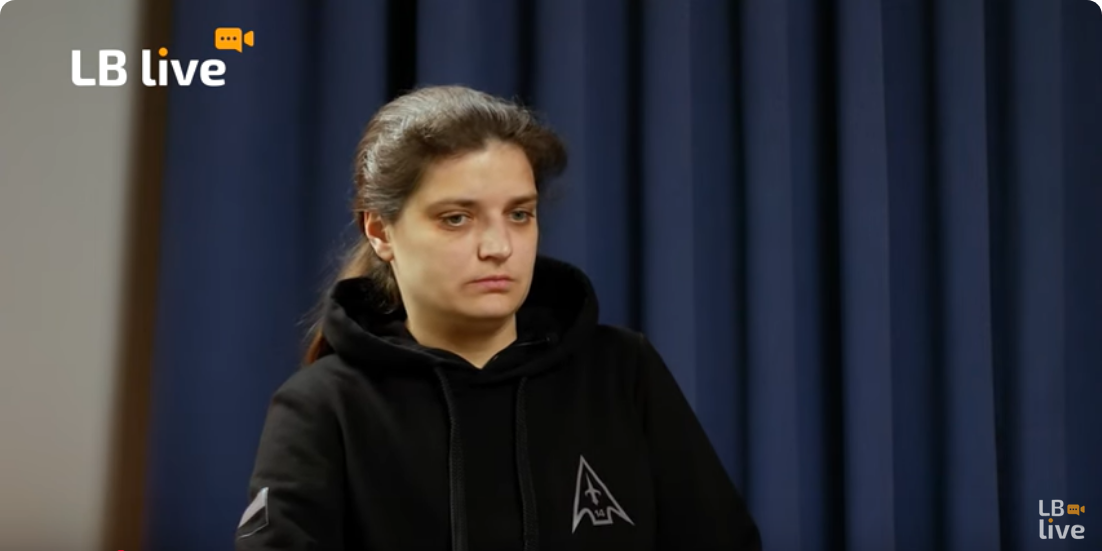
Of course, the democratic world hopes that the system of checks and balances in the United States will serve as a safeguard, but I would not be so sure. I would very much like to see the democratic world order preserved. At least in those Western countries that will be the only antidote to the spread of authoritarian rules of the game, which Ukraine is now increasingly experiencing: from China, Russia, Iran, Belarus, and so on.
And Ukraine is at the forefront of this battle, in the vanguard. It so happens that we are at the crossroads of these worlds, where European bureaucrats in Brussels are on antidepressants and are still in denial. They have not even reached the stage of acceptance or at least some kind of bargaining, depression. At the same time, they are gradually beginning to understand that Ukrainian soldiers are now sacrificing their lives to buy time not only for our families, but for theirs as well. So that they have time to prepare.
But European armies are critically unprepared for modern technological warfare. They do not understand what drone warfare, ground robots, electronic warfare, fibre optic drones and many, many other things that are now game changers are. Therefore, taking all these factors into account, I can say that the Third World War has begun — and it began with Russia's invasion of Ukraine.
And one thing is extremely important to me — to do as much as possible in the shortest possible time to prepare my people. To be honest, I am much less concerned about other nations. Ukrainians are important to me.
‘We are returning to a world of predators, where only the law of force prevails: whoever is stronger is right.’
I have a few additional questions. The first thing I would like to ask is: can we manage without the United States? Not just Ukraine, but the European continent as a whole?
It depends on us. Without US assistance, it will be extremely difficult — that is true. There are three main scenarios for arms supplies from the United States. The first is when Putin, who is currently stalling for time, receives the maximum strengthening of sanctions. And Ukraine will receive the maximum amount of weapons and other capabilities to defeat the occupiers on the battlefield. And so far, we do not see this scenario — only constant negotiations. It seems that Trump is trying to demonstrate to his voters a victory in negotiations at the expense of the weaker side and at the expense of actually surrendering our interests.

The second scenario is that aid will be provided, but it will steadily decrease. This is because there are currently two main programmes under which Ukraine receives US support: the Presidential Drawdown, under which Biden transferred aid by executive order, and the USAI, which involves contracting for the manufacture of weapons for Ukraine. This programme will be difficult to stop because the US president will have to prove to Congress and the Senate that these weapons are more necessary for the US itself.
The third and worst scenario is when the US completely stops aid, does not support sanctions and continues to cooperate with Russia in the business sphere, with American production and representative offices returning there. And we end up with a situation where the aggressor has not been punished. A precedent is set that this is possible. And we see that Trump also has certain appetites for Greenland, and the topic of Canada is being pushed.
In other words, we are moving from a world where at least some vegetarianism and the rule of law were declared to a world of predators where only the law of force applies: whoever is stronger is right. You can take a piece of Ukraine, you can take Greenland, you can attack Taiwan. Dictators and presidents who want to become dictators will forgive each other for this redistribution of the world pie on our planet.
"For the most part, the best inventions in this war are Ukrainians, and the scaling is Russians.’
You also said that we can only win this war through unity and technological progress. Recently, you also stated that Russia is far ahead of us in terms of technology. However, when I talk to manufacturers of drones and electronic warfare systems, they are more optimistic and positive in this regard. Recently, military expert Roman Sinitsyn noted that Ukrainian drones are among the best in the world. The same is said about electronic warfare systems. You say that Russia is still ahead. I would like to hear more about this.
Look, that's true. There are truly unprecedented models of drones, and not only that, but we are now talking about the technology ecosystem as a whole. There are inventions that objectively cost pennies but damage the enemy's equipment worth billions. But at the same time, we must understand that the enemy is not standing still either. The Russians have learned from us, studied our lessons, paying a very high price. But given their population, they can afford to pay that price. They can pay even half a million people to understand what technological warfare is, to rebuild, to create joint teams of engineers, to localise the production of ‘suicide bombers’. Meanwhile, we often lull ourselves into thinking how great everything is. In fact, there are many good things. But we must not forget that the enemy is moving faster and faster. For every dollar we invest in some areas, they can afford to invest 15, 17, or even 20. For every small engineering team we have, they can afford to have several.
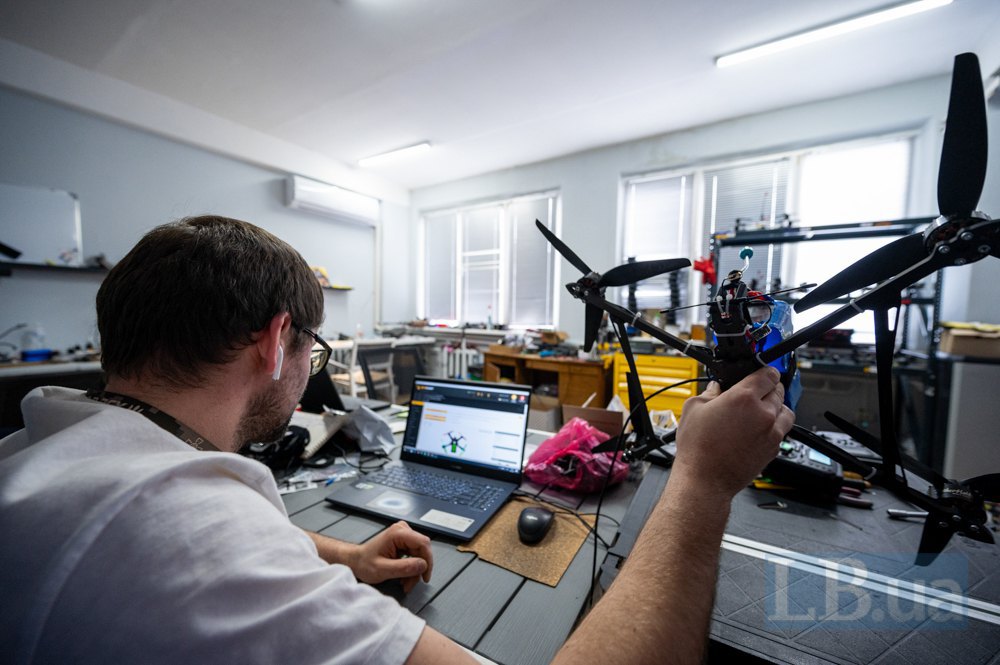
And while our manufacturers are forced to search for components all over the world and import them from China via third countries, the Chinese government has ensured that they can be obtained directly across the border. This greatly reduces the logistical burden, which here can sometimes take two, three or four months. And there, the state works on several levels at once: it invests money in the private sector (we do the same), but it also invests money in state-owned industries.
Plus, the state localises certain industries. For example, Shaheds: objectively, they have become very effective, unfortunately. They also give certain grants to the so-called volunteer military-industrial complex. And so we have a situation where, in a short period of time, we have truly created a technological miracle, unprecedented in the history of independence and generally unprecedented in the world.
But, according to my subjective estimates, 75-80% of our developments are low-tech, cheap technologies from the radio market, on which we have performed miracles. Now we have come to the realisation that we need science. First and foremost, applied science, which applies certain principles of fundamental science. Otherwise, we will not be able to make this leap to a qualitatively new level.
We had two advantages: the heroism of our people and drones. You know what our motivation is now — people are leaving for a number of reasons. I won't go into detail now, but primarily because of trust, exhaustion, the lack of adequate solutions, and the lack of an even and fair workload. And the best people, of course, have been dying since 2014, not since 2022, when the war began. That is why I have constantly repeated that we need to count the war in numbers, in people, money, resources, and the cost of damage. And the Russians are no longer lagging behind in drones. I repeat: they are either on par or ahead.
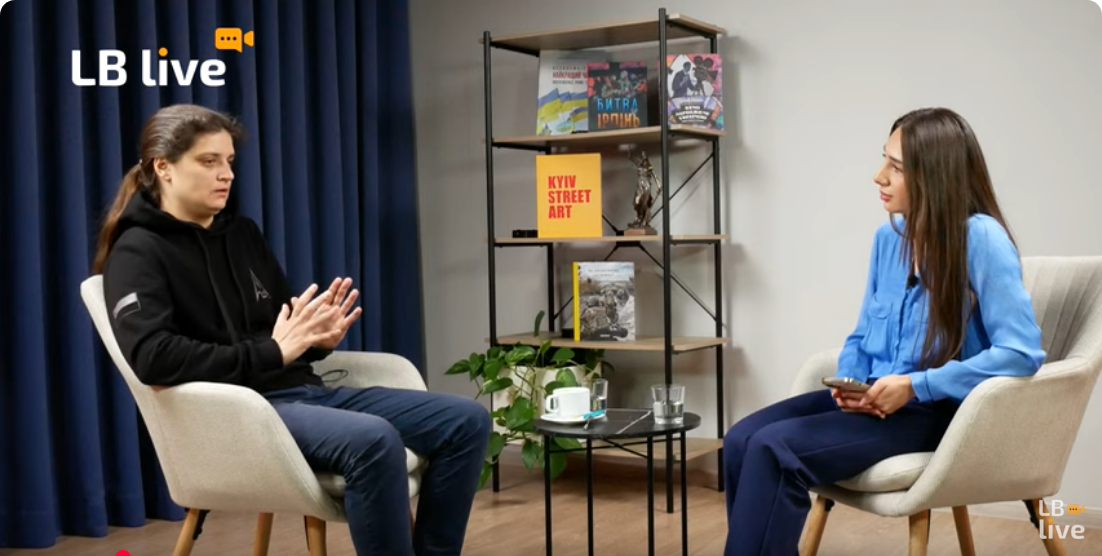
They learn very well from our experience. For the most part, the best inventions in this war are Ukrainian, while the Russians are responsible for scaling them up. Not only engineering discoveries, but also tactical applications. For example, they are already creating unmanned regiments and will also be actively creating unmanned systems. In other words, they have realised that modern warfare is a war of robots and drones. And they are completely restructuring their entire organisation to gain a technological advantage in a war of attrition.
Drones using artificial intelligence have already appeared. Recently, the military began to write about this, saying that they cannot jam them with electronic warfare systems and that we have no counterweight to them. Do you already know anything about these drones?
Well, it depends what we're talking about. If we're talking about fibre optic drones, that's old news. In fact, Ukrainians began to use such drones selectively at the end of 2022.
No, not those, some others. They are called drones with artificial intelligence. They haven't been given a name yet.
Well, we are talking about Visual Navigation systems — automatic navigation and guidance. Yes, they have been around for a long time. Look, artificial intelligence is a term that is used everywhere. But in the classical sense, no one is fully utilising AI on drones. Some specific solutions, perhaps. The fact that we are moving towards robot autonomy has been voiced by me personally and several other colleagues from the expert community for a long time — two or three years ago. We said that this is the only possible and understandable path. Because it is logical.
Now I will try to explain in very simple terms to people who have never dealt with robots. Imagine, for example, that you have an aerial robot. You want it to destroy an enemy that is at a distance of, say, 10–15 km. You have the option of transferring this to the crew, who will control it manually. And here we have a number of problems: the target may not be hit because, for example, the crew will make a mistake, plan incorrectly, miss, etc. The crew may also be hit. And the third factor that must also be taken into account is that there may be certain obstacles, such as electronic warfare, weather conditions and much more. Now imagine how much more convenient it is when you simply have one drone or a swarm of drones.
You simply program them with a specific algorithm that says, ‘Don't touch anything within 5-7 km of the map, and then destroy everything in your path.’ And dozens of systems simultaneously move along the ground or fly through the air and begin to destroy all moving objects, everything they identify as equipment and personnel. Therefore, there will definitely be movement in this direction.
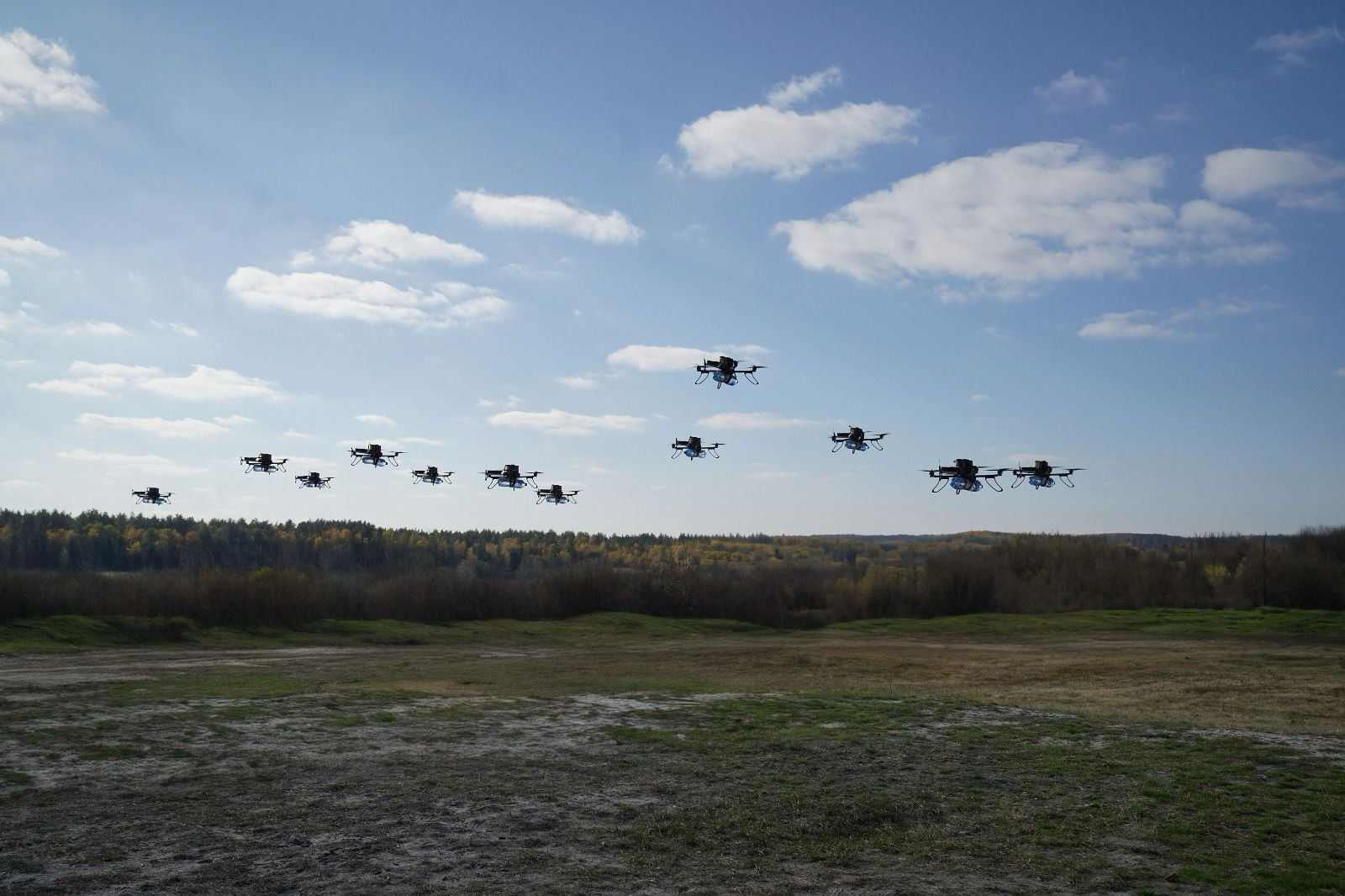
"We need to rebuild our philosophy of approach to war."
The Russians have the support of Iran, China, and North Korea. We also have much less money than Russia. What is the solution? I have heard the opinion that we need to open up the military technology and arms markets — this will supposedly give us the opportunity to spend money on new technologies here in Ukraine.
Look, I will give you my humble opinion. There is no ‘win the war’ button at the moment, but there is a set of measures that need to be taken immediately to keep the situation under control. I will name a few points. They are not exhaustive, but in my opinion, they are simply necessary.
First, we need to rebuild the very philosophy of our approach to war. We treat it as a temporary phenomenon that is psychologically exhausting, but which we simply have to endure — and soon this horror will be over. I too would very much like it to end and to return to my previous life. I am even prepared to accept COVID-19, but we need to be in touch with reality. And what am I trying to do in the public sphere, why am I writing these articles and going to interviews, apart from my main job? Precisely because I love my people and believe that we are asleep. If not all of them, then most of them. And we need to wake them up so that we don't wake up when it's too late, like Mariupol, Bucha, Bakhmut, and Avdiyivka woke up.
The change in approach must be enshrined in military doctrine. And it must be written there that war is not some temporary difficulty that began in 2022 and will end with a truce in 2025. This war has been going on for centuries, but we have simply forgotten about it. Entire cities and villages, such as Baturyn, were destroyed. Cossack leaders were tortured in camps, our best writers and poets were shot, and millions of Ukrainian peasants were starved to death. All of this should really remind us.
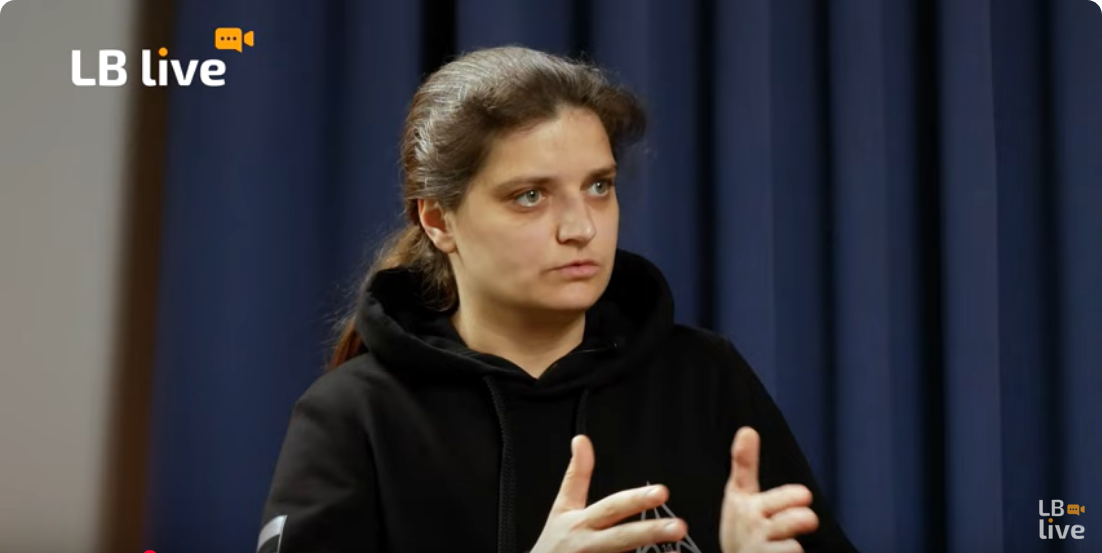
We have become complacent in this comfortable bubble of civilisation, where you can quickly heat up food, call a taxi, go to the cinema, visit a restaurant, hop on a plane and be on the other side of the world in no time. We have become complacent and accept that technology is humanism. It is not humanism. It's just that in the past, people killed each other with stones, then with sticks, then with swords, then with guns, and now with drones. And technology gives us an unprecedented opportunity to control other people. War will not be perceived as a temporary difficulty when society understands that it is a matter of survival for everyone. To prevent our children from going to war, we all need to get involved now and distribute the burden evenly and fairly among ourselves. Just like in a family, right? Someone can't just lie on the couch while someone else earns money, cleans the house, and raises the children. It has to be fair. Everyone wants to live: men and women alike. And so that this does not affect our children, because now those who were 6-7 years old in 2014 are dying in the war.
Rebuilding the line of defence. Definitely. We need to hold back the ever-growing enemy legions with fewer and fewer infantry — and Russia is forming new and new divisions. To do this, we can no longer build defence lines like we did for World War II: simply digging trenches. Defence lines must be fortified deep underground, mined for at least 20–30 km.
We need to take into account the practices of those units on the front line that have a technological component, where crews can be stationed to operate technical equipment, where there is the possibility of shelter, where this equipment can be recharged and antennas can be serviced. That's one story.
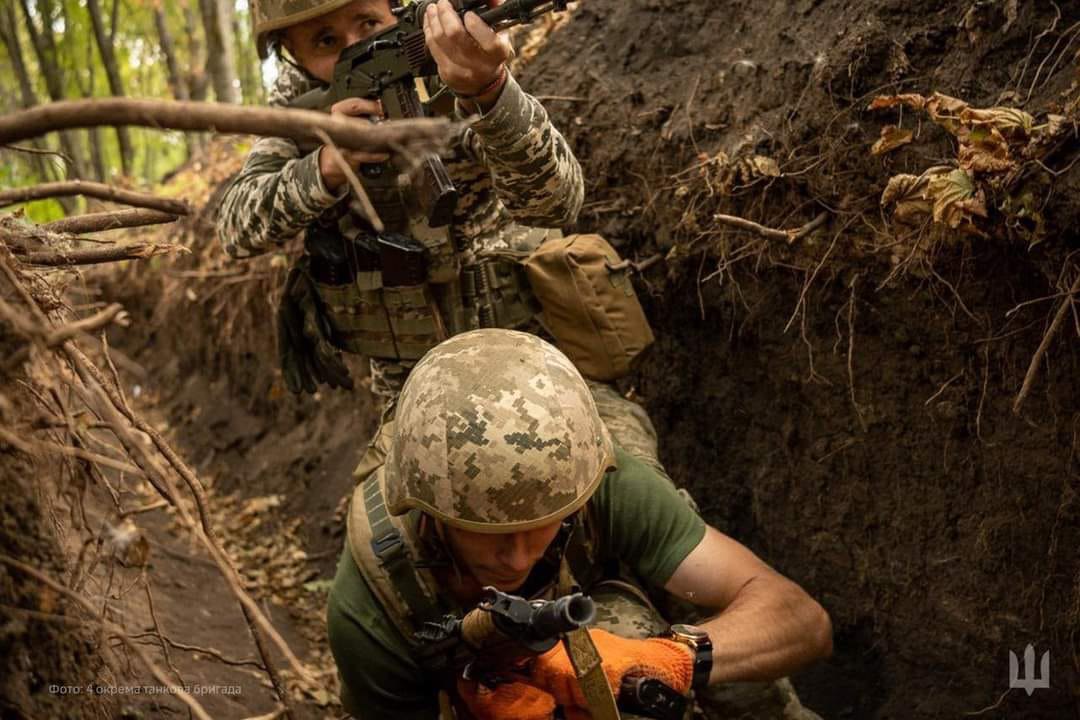
Next, we need to talk about a certain assessment of people in the security and defence sector who make decisions. I have a professional bias: I treat people like robots. I believe that everyone has their own technical characteristics. And so often a robot that can lift a barrier at most controls an entire battalion. And a robot that could command a battalion and was the head of some company in civilian life lifts and pushes.
‘Putin cannot stop now, he will go to the end.’
Let me clarify right away. Is this a problem at the recruitment and mobilisation stage, or is it a problem specifically with commanders?
The problem is that we do not use people where they can do something best. There is no such approach. There are already progressive units that look at where a person can be best used.
Why make him a bad car mechanic if he is a cool media person, blogger and can raise 5 million hryvnia a month for the unit? Or he is a good engineer — let's make him a bad cook or paramedic. There is no basis for this story. We don't look at a person's background. And we don't evaluate the people who make decisions at the level of company commander, battalion commander and above. And only when there is a real disaster, when the whole brigade says that he is a ‘butcher,’ does some kind of movement sometimes begin.
This is not about democracy in the army, not about soldiers voting on who will be the next commander-in-chief. It is about ensuring that the narrow circle of military and political leadership relies on very specific data when making decisions. Right now, it's mostly like this: some say he's a bad brigade commander, others say he's good. It's just one person's word against another's. For example, there is an electronic scoring system from the Ministry of Digital Transformation. It clearly shows which units are effective in using drones and which are ineffective — points are awarded for this, and they then receive drones again.
So, I have mentioned two points. The third is the preparation of the entire population, the so-called technological militarisation of society. I have believed in this concept for many years, that everyone should be able to manufacture or apply technology to protect themselves and their tribe. We must give our people the tools to protect themselves.
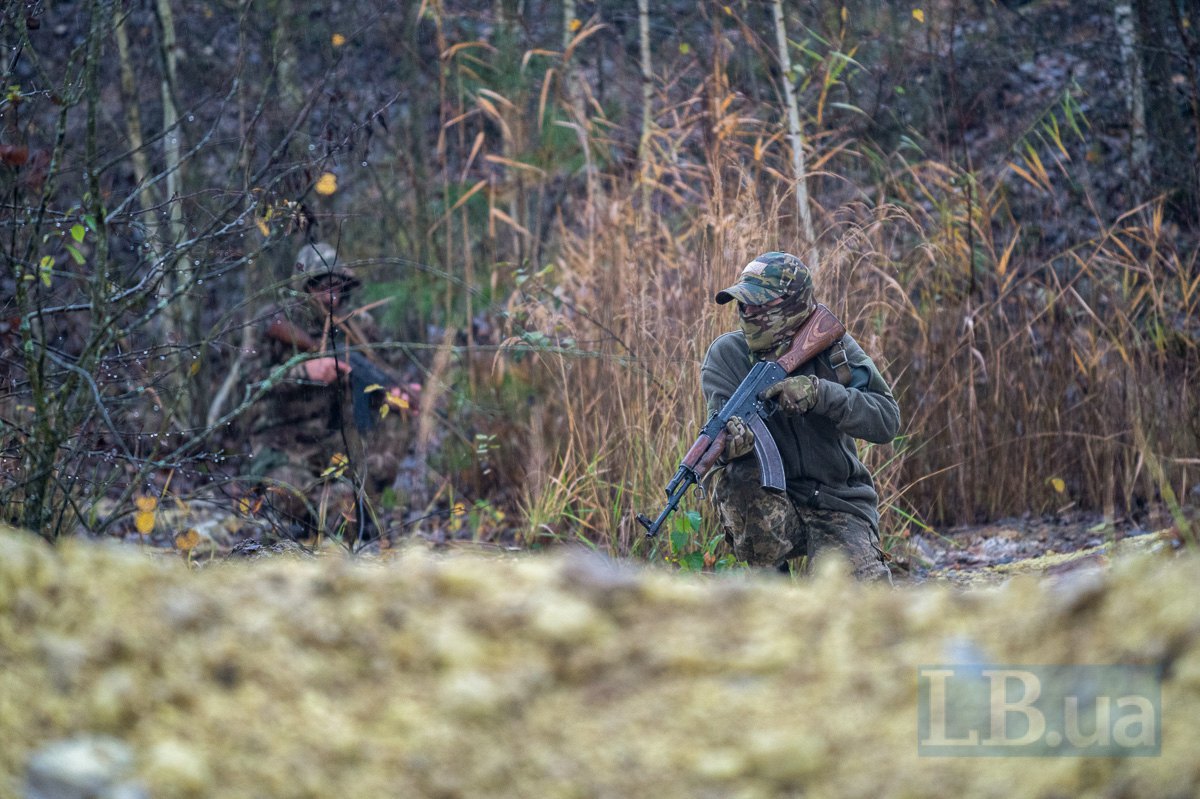
To this end, I initiated a change to the school course ‘Defence of Ukraine’ so that our children could also begin to study robotics, drones, etc. I believe this should be, you know, a hit at a rock concert. Ukrainians should be enamoured with technologies that create a technological shield that prevents the enemy from breaking through, no matter how many of them there are, and there will be many. There will be thousands of foreigners from different countries and Russians themselves, who are given huge payments. On the other hand, they have very strict discipline: their own people will simply eliminate them if they do not move forward.
In order to survive, we really need to realise how dangerous the enemy is, that they will go to the end. Putin cannot stop now. And it is no longer just about his ambitions, which, of course, exist — he needs to sell the victory within his own society. To explain why hundreds of thousands of people died. He needs to show a ‘new Crimea’ — new regions that have been won at such a price.
Russians know how to ignore any price. And if they eliminate thousands of their own people in the ranks with a shot to the back of the head, imagine what they are prepared to do to us.
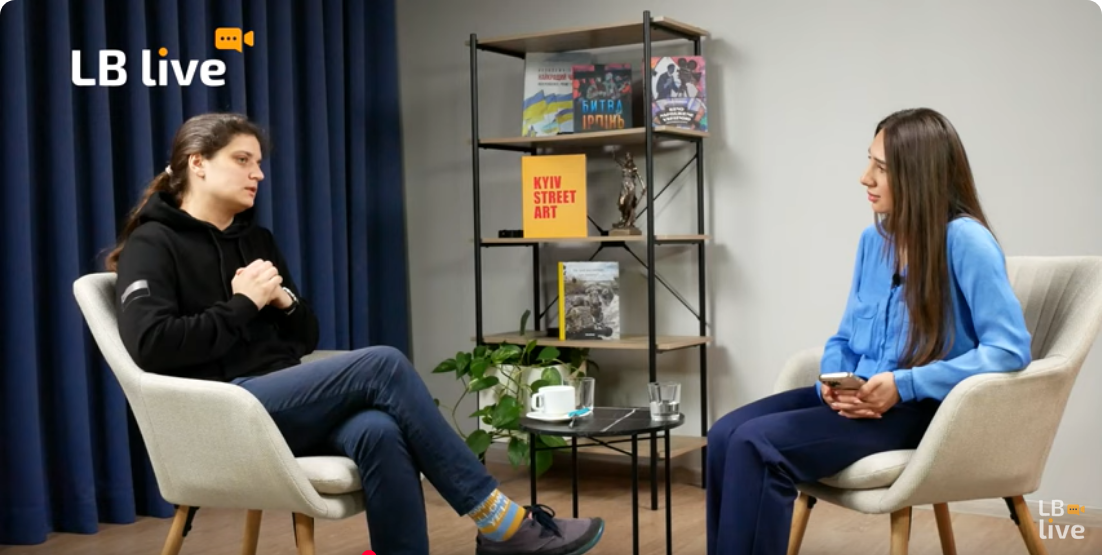
We need to understand that our soldiers are buying us time with their lives. And people are falling like sand from an hourglass: every five to seven minutes someone dies, every few minutes someone is maimed.
We need to respect this time and prepare ourselves as much as possible — calmly, deliberately, thoughtfully. And stop thinking that this is like a cold that you have to endure — and it will pass. It will not pass. And there will be no borders of 1991, at least in the coming years. But we can make sure that they do not advance further and that the price becomes prohibitive for them.
‘We are already at the point where both women and people aged 18 and over need to prepare for mobilisation."
If we are talking about the entire adult population, let's be honest, we are talking about lowering the age of mobilisation and mobilising women. That is the case. Do you think that we have now reached a point where such unpopular decisions are necessary?
No, I don't think we've reached that point yet. But we are at the point where both women and people aged 18 and over need to prepare. In fact, the entire adult population, without exception. I really don't want yesterday's schoolchildren to serve. I also don't want women to serve. We still have mobilisation resources, the ability to recruit foreigners. There are people who have never been involved in defence, but who are capable of doing so.
There should not be any untouchable caste. It is important that the ruling elites set an example. This will give those who have been on the front lines for many years a chance to breathe and rest. It will also create a completely different social mood. It will no longer be possible for Russian IPSOs to use the narrative that war is for the poor, not for everyone, only for some, if there is an example, including from the ruling elites, and there are no castes, ‘Monaco’ battalions, and so on. It is important to show the unity of the nation and that everyone is at equal risk.
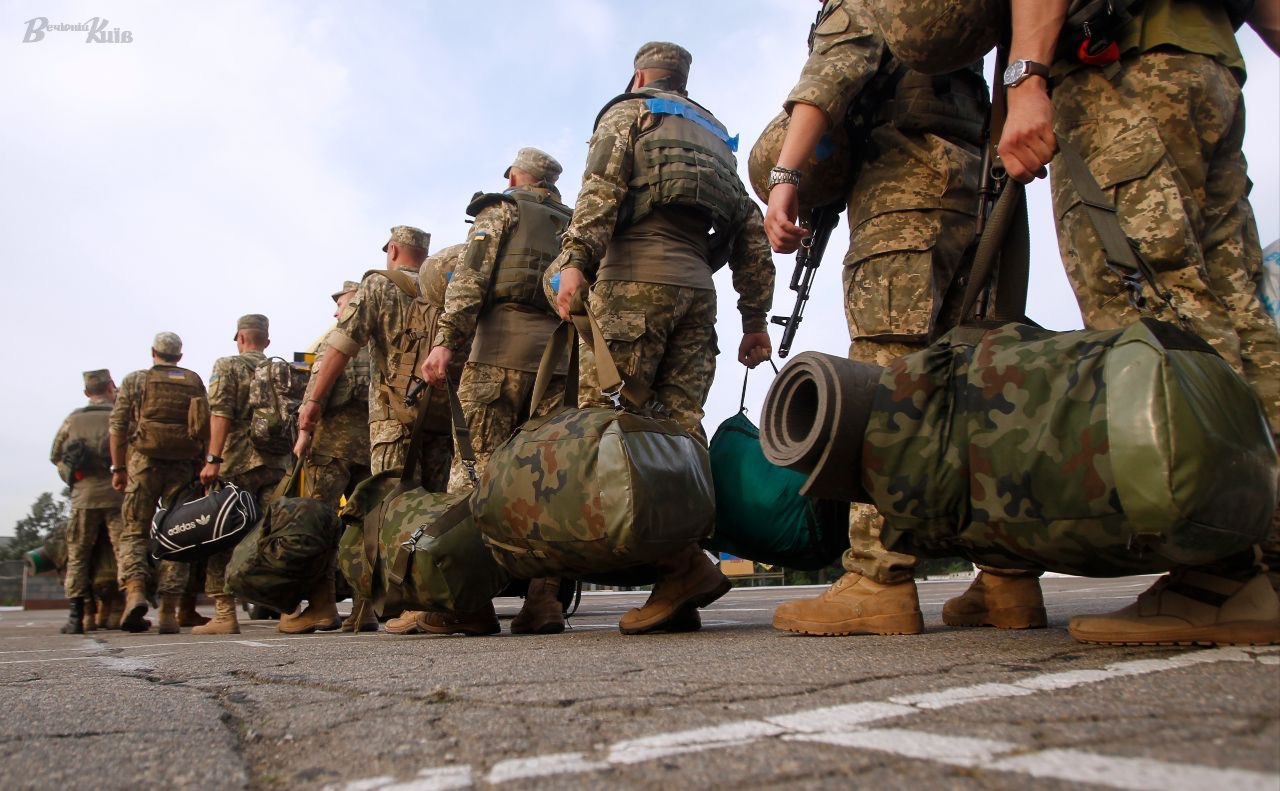
Again, I believe in healthy feminism — this means not only equal rights, but also equal responsibilities. I don't think that men's lives are worth less, or that they want to live less. But at the moment, I don't see the need to forcibly mobilise women. And we need to preserve men so that we don't have to resort to such unpopular decisions. We still have a chance to avoid bringing the situation to such a critical point.
But these are unpopular decisions. I think politicians simply won't dare to do it. That is, it is more up to individuals to make up their minds and go voluntarily...
Imagine the worst-case scenario: Russia is advancing, and we are demoralised, we are running out of people, we are not receiving support. What next? Either we fight or we die. We really like the best-case scenarios. But it didn't happen in 2014 or 2022. And now many believed in Trump's sacred truce in 24 hours. If we take this into account, then the question as such will be removed.
Our team's task since 2014 has been to provide a tool. And if people used to laugh at us when we said there would be a drone war, now it's not so funny.
Now I see that technology is an objective game changer and the only thing that will enable us to survive. That is why I strongly encourage everyone to take our free theoretical and practical courses. This is an opportunity to learn how to fly drones, understand what OSINT, information security, and cybersecurity are, and learn about software, topography, and navigation. Look, an army can be defeated. A people who have become an army are invincible.
What do you think will be the next game changer?
A series of game changers. I have already mentioned here that we will be moving towards robot autonomy. The fewer humans involved, the better. We will increasingly see ground robots shooting and working like anti-aircraft guns on airborne targets, and airborne robots attacking ground targets. Since it is now very difficult to reach positions (it is a whole special operation), logistics will be carried out by ground drones. Now, ground drones are also carrying out last-resort evacuations.
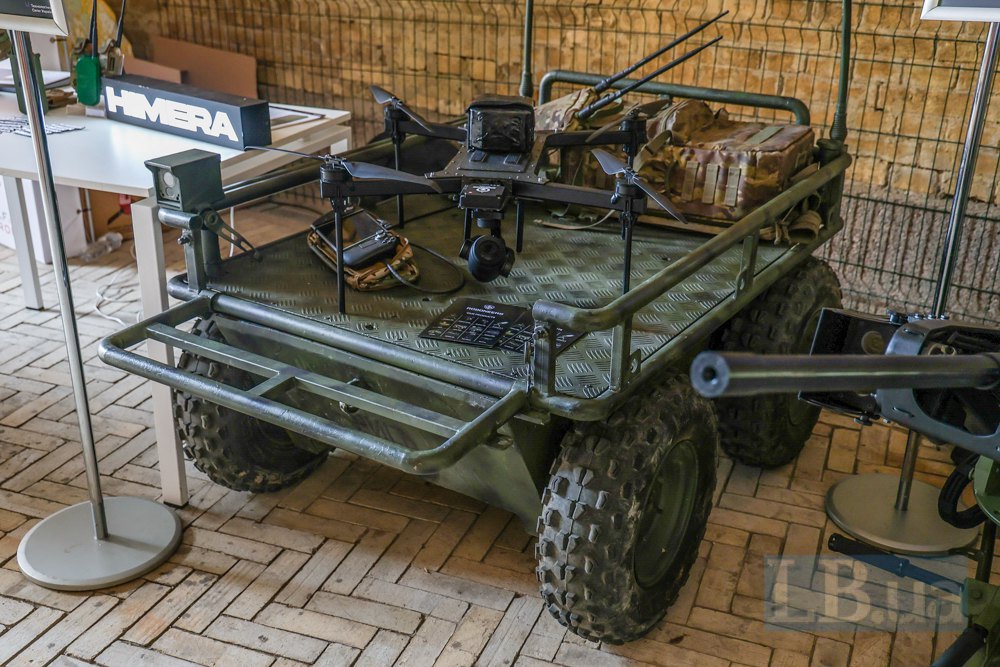
Of course, I repeat, laser and electromagnetic weapons. This involves the use of so-called mother drones, which will carry and launch other drones. This is also a promising area. Just yesterday, we talked to one manufacturer about swarms of drones. They now have some interesting developments and software. The issue of autonomous communication.
You recently wrote that Russia will soon be able to launch 1,000 shaheds per day. What can we do in response? And here's another question, Mariya: we have seen recently that Russia, unfortunately, is striking more often at long range. Perhaps our tactic should be to use drones at close range, but in greater numbers? And to strike their equipment, their warehouses.
Right now, Russia cannot launch 1,000 Shaheds, but it is moving towards that. This does not mean that it will launch them every day. It will be a huge burden on the budget, although the Russians are increasing their military budget every year. And it is gradually reaching, if I am not mistaken, $170-180 billion. Accordingly, I repeat, they are moving towards launching a combination of up to a thousand Shaheds and missiles, but this will not be every day. But at the same time, imagine how much this will overload our air defence system, which cannot even withstand the load of several hundred such Shaheds and missiles at the same time... They have also perfected their Shaheds as much as possible. Plus decoy drones. They bypass our various air defence elements. And they are really very effective and painful for us. So, we need to not be shy about learning from the enemy and thinking through every attack. Because this is also mathematics, constant modelling.
It cannot be like it was at the beginning: let's take more expensive deep strikes and throw them there. Deep strike is basically, you know, a missile for the poor. And they need to be used very thoughtfully, with decoys, with clear calculations.
I can also mention our naval drones. You have seen their success in shooting down Russian aircraft. This also needs to be built up. This requires support.
I would also like to mention our maritime drones. You have seen their success in shooting down Russian aircraft. This also needs to be expanded. This requires support.
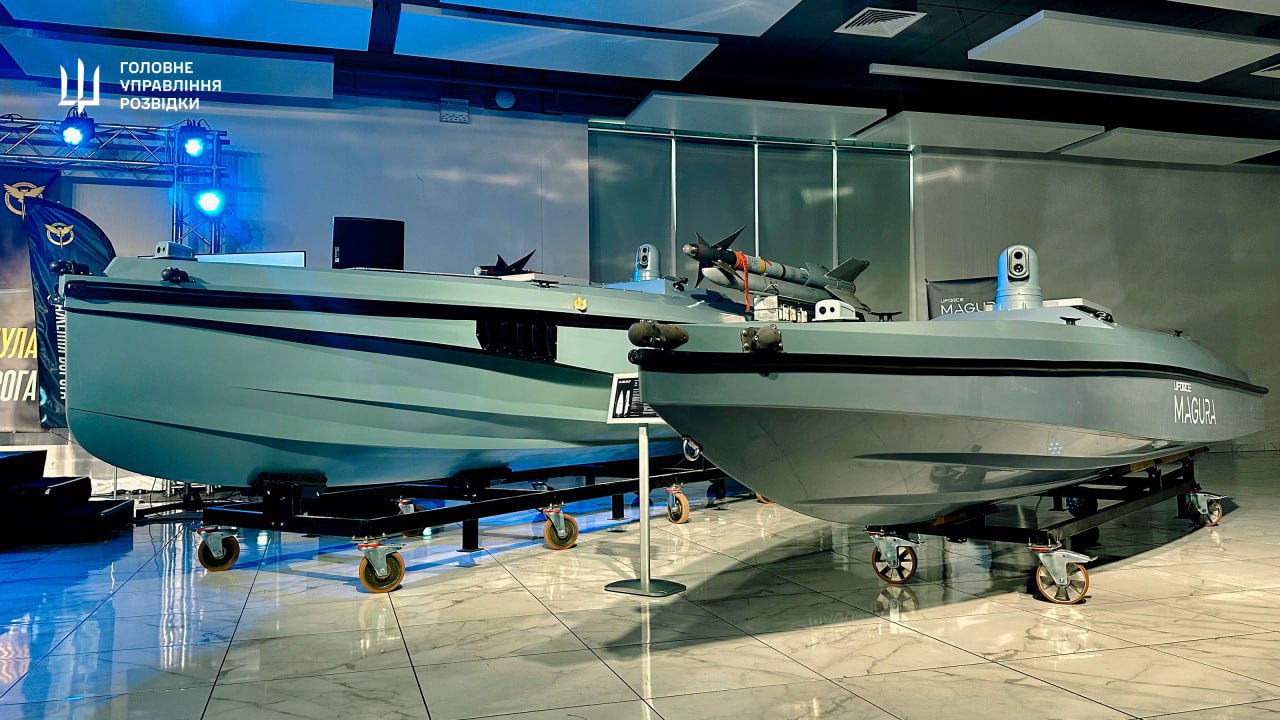
As for the middle strike, we have a certain failure in this area. We have a closed distance of about zero to 15-20 km maximum. Then we have a certain pit. Yes, there are applications at an operational depth of about 20-30 km to about 120-150 km, but they are few and far between. We need to definitely increase this, because these are the places of accumulation, regrouping, logistics, deployment of personnel, command posts.
The war machine needs to be destroyed, not only when it is close. It needs to be destroyed at operational depth, so that the infantry does not feel it. That is, it is a more complex tool in the hands of officers planning combined operations than, for example, missile weapons.
I just remembered a UAV operator in our studio saying: ‘If someone loses a drone, they simply don't know how to fly it.’ I just remembered this now, just to hear your answer. This is, of course, a joke, it doesn't always work out.
Yes, it can be a pilot's mistake, but very often they can even jam it with their own electronic warfare. There can be various factors: the terrain factor, the weather factor, and very often unrealistic tasks are set. Although pilot errors also exist, we will move towards robot autonomy.
‘It is much harder for democracy in times of war than for a rigid dictatorial vertical’
Another clarification about engineering teams. Russia, of course, already has its own ecosystem with Iran and China. Do we have engineering teams with NATO partners? Or do they not help us?
It's relative. I wouldn't talk about the kind of full-fledged systemic work that authoritarian totalitarian regimes quickly built. In general, you know, it is much harder for a democracy in times of war than for a rigid dictatorial vertical. I am convinced that we need to move to a kind of war democracy. Of course, not to slip into authoritarianism, because that is also a risk. But wars are not won in the format of democracy and general relaxation in which we are now.
There (in the dictatorial vertical - Ed.), decisions are made very quickly, very large resources are allocated and strictly controlled, and there is maximum accountability for achieving results. A number of commanders are not even in prison - they have been zeroed out.
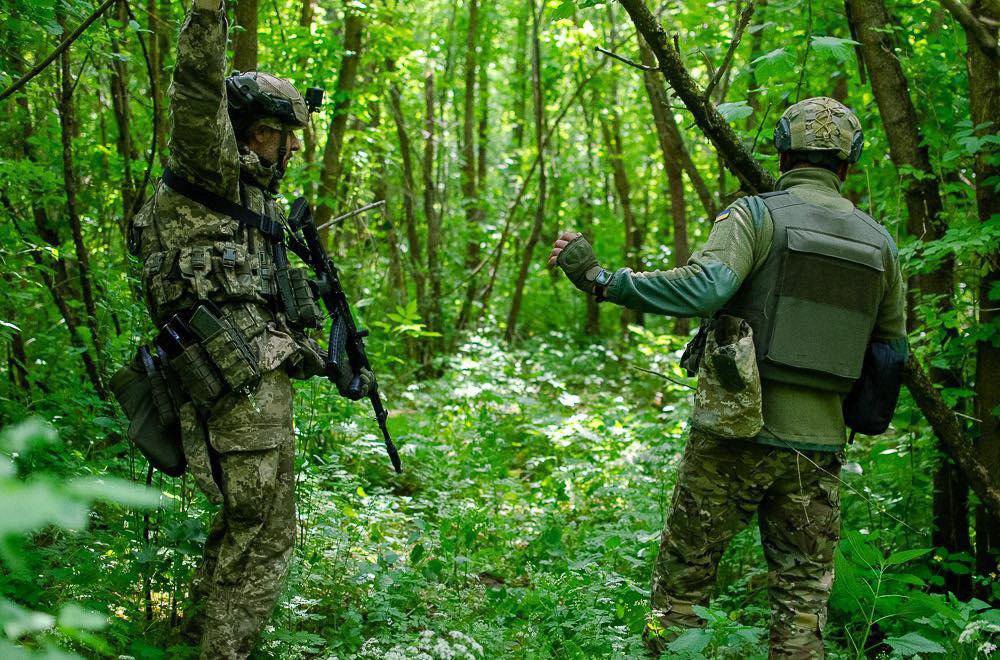
I am not saying that we need this, by any means. Because if we turn into something so manic and terrorist, what are we fighting for? But also the laxity with which we pretend here that we will finish our latte and defeat the enemy with our left hand... The high that we had in 2022 was such euphoria after Kherson and Kharkiv regions, after the troops withdrew from Kyiv. I remember very well how difficult it was to wake people up. When I came, I tried to explain: ‘Look, these are battles won, but this is not a war won yet.’ They would say to me: ‘Mariya, you are just the biggest pessimist in this war’.
Stop, don't you understand what Russia is? Look at their map, their GDP, their population, their military-industrial complex. Even if they take a long time to warm up this machine, they will eventually start it up, and these illusions will cost us dearly. We need to prepare for a long war. This is the only way we will be able to resist.
I could feel how psychologically unpleasant it was for people to listen to me, how they were trying to close themselves off from it and, like, read the good news. But I was saying it, am saying it, and will continue to say it, not to make people, you know, despair or demotivate them. It's just to get in touch with reality and work calmly, because I love my people. A manifestation of love is to say what it really is, to tell the truth. And to keep it.
Imagine if a doctor said: ‘You don't have cancer or gangrene. Like, don't worry, just drink some water and vitamins and everything will be fine. In such cases, the doctor should come and say: ‘Look, you need an operation, after that there will be rehabilitation, you need to monitor your health and take certain measures.’ Not just reassure them.
‘It's very important for us to start working on reprogramming Russians into reality’
And you gave a recipe today?
The recipe is technological preparation and militarisation of society. And I give all these interviews in public so that I would not be ashamed to watch them in years to come. My interviews in 2014 or 2015 contained more or less the same things. I tried to explain that, look, drones are important, technology is important. If we don't fight with technology, we will fight with people. People are a non-renewable resource, they are our relatives, friends, and loved ones. So let's fight smart now, let's develop the industry. Then we will pay a heavy price. These were the messages back then.
Now I believe in a certain game changer as rationally as I did in drones in 2014. This is, in fact, working in the information space with the Russians, about 140 million of them. And it is illogical and irrational to bet that we will physically destroy them all. For 20+ years, they have been told about some parallel reality, that there is an evil NATO, and Ukrainians are part of it. And it is very important for us to start working with Russians to reprogramme them to reality.
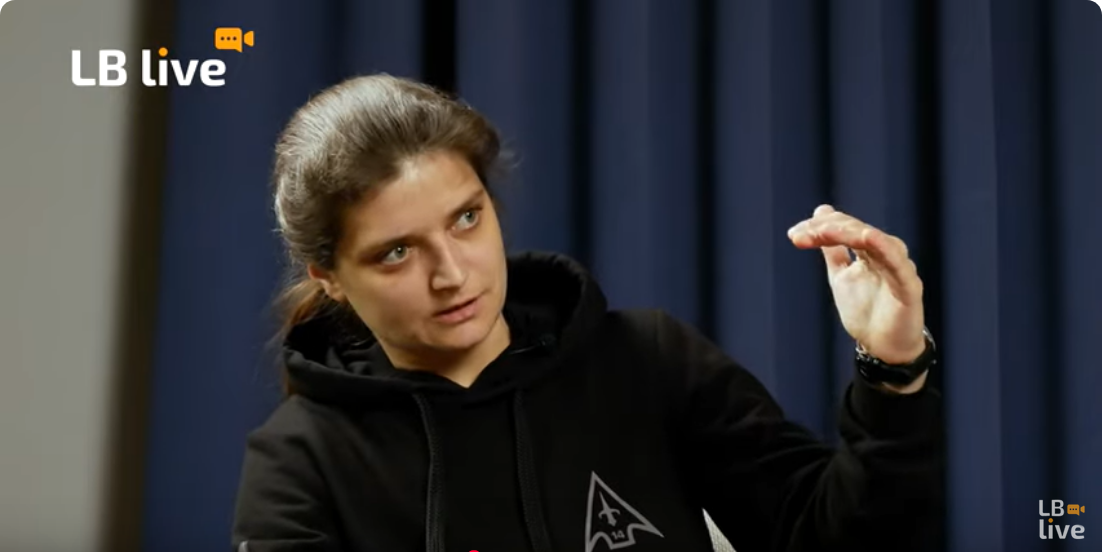
But we did try at the beginning of the full-scale war. In particular, media people and the media.
I'm not talking about single voices or even hundreds of people involved in reaching out. I am talking about a systemic state policy. When we understand that there is a large artificial entity made up of different peoples, different religions, different classes and territories. And the ontological nature of every empire is expansion.
And some of our viewers, of course, will doubt and say: ‘Everything is hopeless there.’ I believe that if you create a quality product, a quality course with specific narratives, which will be aimed at your target audience... If you don't deceive them, but bring them back to reality, where they have the largest country in terms of territory with huge resources and they could live no poorer than Norway... But most of their population is below the poverty line. If we constantly repeated to them, using their socio-cultural codes, that the ruling elite had deceived them and was now trying to stay in power at the cost of hundreds of thousands of lives of their loved ones... Yes, we will never reach some of them, it's true. But every society is a spectrum. There will always be hawks, these conditional 10-15% who will want to fight to the last. There will always be conditional doves. And there will always be a spectrum.
Our task is to move a certain part of the population towards ending the war. And to direct this aggression not at the outside world, but at the ruling elite. This is not a project that, you know, happens in a month. This is not a story where a few hundred people are involved. This is a story for years and for Ukrainians to be involved in it, again, as certain programmers.
Because a 5-year-old child in Moscow is not an occupier, it's a child. But after 12-13 years of programming, which people call education, he will be an occupier who will come here to rape and kill. Because he will be programmed to do so.
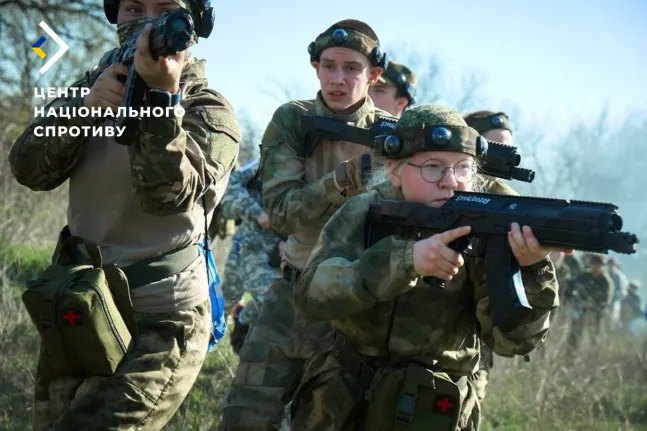
There are more and more people returning from the war who have lost their health and have combat experience. And they are already feeling a certain desire to change the political elites, because they are returning as nobodies. That is, they have a certain experience of living in a space of lawlessness, where the Criminal Code does not work. And they always want to bring this experience inside this country and squeeze, kill, and establish their own new order.
We are now in a very infantile position. I once read comments after the attack on Okhmatdyt. People write on emotion: ‘What are you bastards doing to us?’. Do you understand what kind of position this is? It shouldn't be a position of victimhood and hatred. A surgeon has no emotions when he performs an operation, just like a programmer has no emotions when he programs a robot. We have to rise above this and proactively explain to them what the reality is and what they have to do to take back their own country and remove these political elites.
Can we bring North Koreans back to reality? No, we can't. Because we don't know the language, there is no internet. The Chinese? No. We don't know the language. And the Russians? We know the language, and the most important thing is that we understand the context. We understand how their brains work, because they constantly bombarded us with these caveats, blue lights, TV shows, songs, stand-ups, raps.
We understand how they think. But they don't understand how Ukrainians think. Because they don't know the difference between a poem by Stus and a poem by Shevchenko, how Shevchenko played football, or what paintings Maria Prymachenko was represented by. How we returned to our memory of the Holodomor, the Executed Renaissance, and dissidents. They do not know these words, names, texts, narratives. And so they cannot fully work with it, because they disdained that culture, considered it secondary. And this gives us an advantage, because we know our own culture very well, but we also understand how the enemy's brain works.
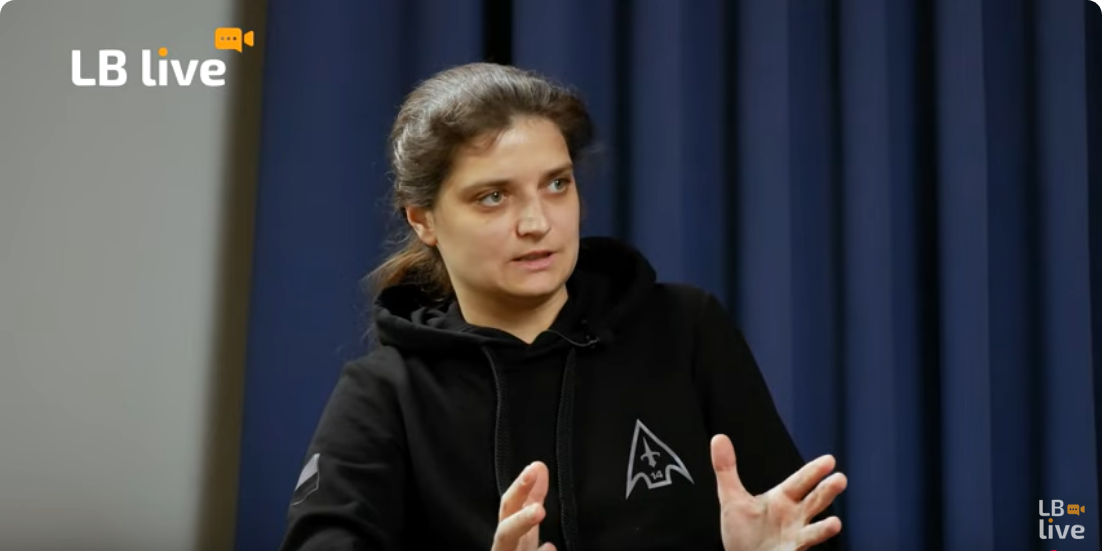
This is very interesting. In fact, this is the first time I have heard from you about this area of work and I think it is really very promising. Thank you for giving us a little insight into how to work with the Russians. I really thought that we could give up on this, but it was very profound. Mariya, thank you.








